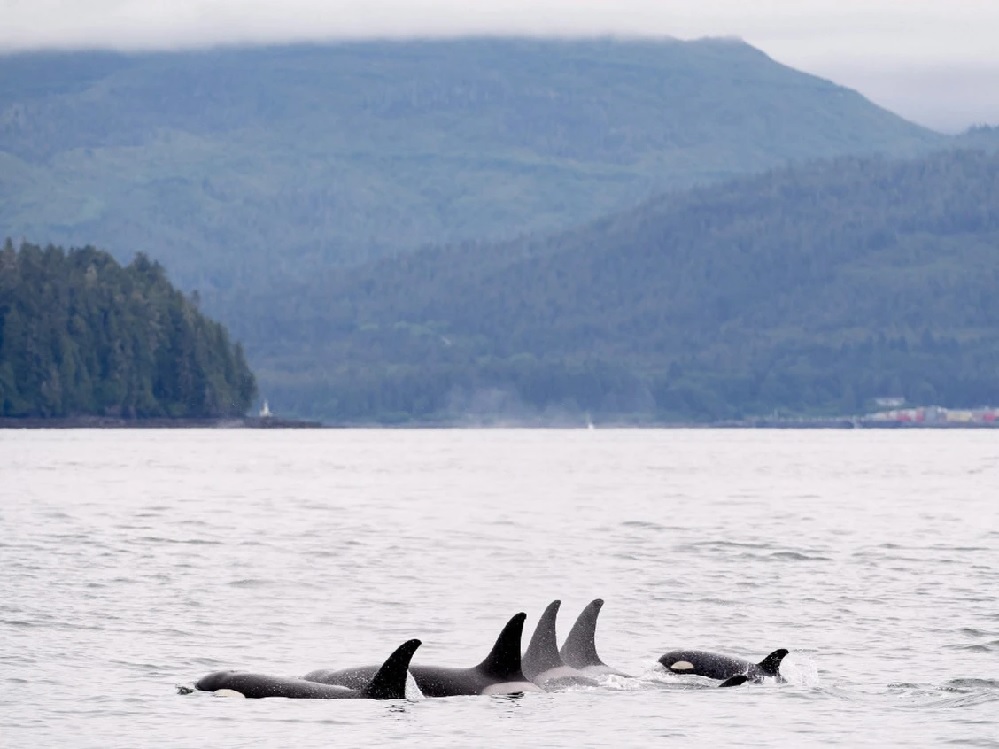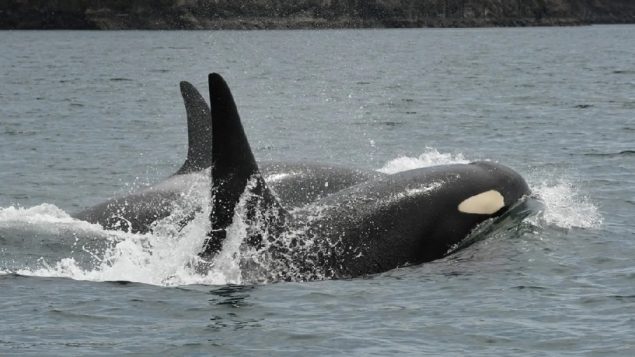Researchers at Simon Fraser University (SFU) want to use ‘AI’ to help protect orcas from being hit by ships off the Pacific coast.
Steven Bergner is a computing science research associate at the university’s Big Data Hub, in Burnaby, British Columbia.
Using the network of hydrophones in the Salish Sea, the idea is to collect sounds and be able to separate the noises of waves and ships from whale communication. The whale sounds will be used to ‘teach’ a computer to recognize the various species of whale sounds in a 24 hr a day The project would then be able to advise ships of the presence of whales in their path so they could slow down or alter course. The hope is to reduce the number of potentially fatal ship strikes.
The project builds on work already begun by another SFU researcher, Ruth Joy. She is a statistical ecologist at Simon Fraser University’s School of Environmental Science working on two orca projects expected to be completed in 2022.

Orca pod in Chatham Sound near Prince Rupert, B.C., Friday, June, 22, 2018. Noise from ships and pleasure craft has been reduced in the waters off the British Columbia coast as the pandemic has marked a significant reduction in sea traffic, which scientists say is an opportunity to study how noise affects southern resident killer whales. PHOTO BY Jonathan Hayward /THE CANADIAN PRESS
There is a special concern for the ‘southern resident orcas’ which are listed as being endangered. The salmon-eating southern residents on the west coast are one of four distinct orca populations which include the salmon-eating northern residents, the transients which prey on seals or other whales, and the offshore orcas which mostly feed on sharks. Each of the groups has a communication dialect and calls which differ from the others. And the system would ‘learn’ which groups are which and estimate their direction of travel based on ‘typical’ movement patterns. The information would be sent to ships in real time giving a three or four hour window in order to enable ships to take evasive action.
The project brings together experts in computer and machine learning, statistics, and biology. It is being funded by a grant of almost $569,000 from Fisheries and Oceans Canada (DFO) as part of the Oceans Protection Plan–Whale Detection and Collision Avoidance Initiative.
The SFU researchers are collaborating with machine learning experts from Carleton University in Ottawa, Ontario and Dalhousie University in Halifax, Nova Scotia on the east coast. Ruth Joy estimates there are only about 74 members of the southern resident group remaining.
The developments of these west coast projects will be shared with other researchers in order to potentially save other whales elsewhere.
Additional information-sources
- Simon Fraser University news: Dec 11/20: SFU researchers developing AI system to protect killer whales
- Canadian Press ( PostMedia): C Bains: Dec 13/20: Researchers aim to use artificial intelligence to save endangered whales in B.C.
- The Science Times: Erika P.: Dec 14/20: Using AI to save endangered killer whales







For reasons beyond our control, and for an undetermined period of time, our comment section is now closed. However, our social networks remain open to your contributions.